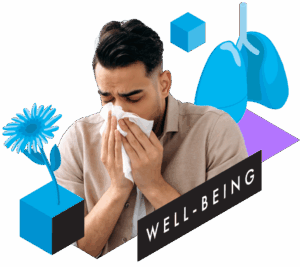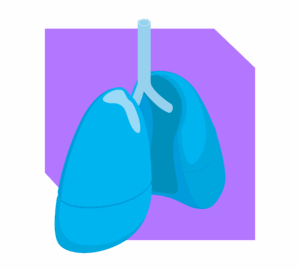May: Asthma & Allergy Awareness Month

Understanding and Managing Asthma and Allergies for Better Health
May is Asthma & Allergy Awareness Month, a time dedicated to raising awareness about these common diseases but if neglected may become a serious condition. Millions of people worldwide suffer from asthma and allergies, affecting their daily lives and overall well-being. By understanding the causes, symptoms, and management strategies, individuals can take proactive steps toward better respiratory health.

What Are Asthma and Allergies?
Asthma is a chronic condition that causes inflammation and narrowing of the airways, making breathing difficult. It can be triggered by allergens, exercise, cold air, respiratory infections, and even stress.
Allergies occur when the immune system overreacts to substances like pollen, dust mites, pet dander, certain foods, or insect stings. Common allergic reactions include sneezing, runny nose, itchy eyes, skin rashes, and, in severe cases, anaphylaxis.

Recognizing the Symptoms
Understanding the symptoms of asthma and allergies can help individuals seek timely medical attention and avoid complications.
Asthma Symptoms:
- Shortness of breath
- Wheezing or whistling sound while breathing
- Chest tightness or pain
- Persistent coughing, especially at night or early morning
Allergy Symptoms:
- Sneezing and nasal congestion
- Itchy, watery eyes
- Skin irritation or hives
- Swelling of the lips, tongue, or throat (in severe cases)

Managing Asthma and Allergies
While asthma and allergies cannot always be prevented, effective management can help control symptoms and improve quality of life.
- Identify and Avoid Triggers – Pay attention to common allergens such as pollen, mold, dust mites, pet dander, and certain foods. Keeping a journal of symptoms can help identify specific triggers.
- Follow a Treatment Plan – People with asthma should have an asthma action plan created with their healthcare provider. This may include daily controller medications and rescue inhalers for emergencies. Allergy sufferers can benefit from antihistamines, decongestants, or allergy shots.
- Improve Indoor Air Quality – Use air purifiers, regularly clean bedding, and keep windows closed during high pollen seasons to reduce allergens indoors.
- Maintain a Healthy Lifestyle – Regular exercise, a balanced diet, and adequate hydration can help strengthen the immune system and improve lung function.
- Stay Informed About Weather and Air Quality – High pollen counts and poor air quality can worsen symptoms. Checking daily air quality reports can help individuals plan outdoor activities accordingly.
- Seek Medical Advice for Severe Symptoms – If breathing difficulties worsen, or if an allergic reaction causes swelling or difficulty swallowing, seek medical help immediately.

Myths and Realities about Asthma and Allergies
There are many myths surrounding asthma and allergies. Below, we clarify some:
Myth: “Asthma only affects children and disappears with age.”
Reality: Asthma can appear at any age, and while some children may outgrow it, many adults continue to live with asthma.
Myth: “Allergies cannot get worse over time.”
Reality: Allergies can worsen over time if not properly managed. Regular consultations with a specialist are essential.
Myth: “Using inhalers is harmful to your health.”
Reality: Inhalers are safe and effective when used correctly. They are not addictive and help control asthma and allergy symptoms.

Raising Awareness This May
Asthma and allergies affect people of all ages, and increasing awareness can help improve diagnosis, treatment, and overall management. Here’s how you can participate:
- Educate yourself and others about asthma and allergies.
- Support friends, family members, or colleagues who suffer from these conditions.
- Advocate for cleaner air and allergy-friendly policies in workplaces and schools.
- Participate in community events or share reliable information online.
By staying informed and taking preventive measures, we can create healthier environments for everyone, especially those affected by asthma and allergies.
Sources: National Heart, Lung, and Blood Institute (NHLBI), American Lung Association, Mayo Clinic, American College of Allergy, Asthma, and Immunology (ACAAI)

